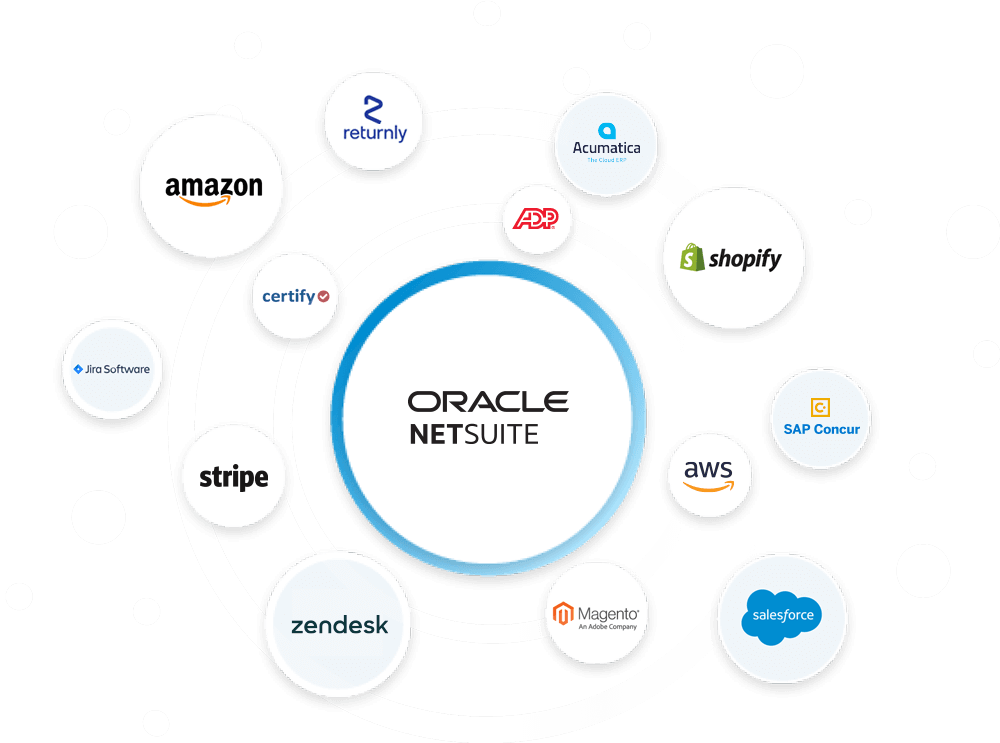Here are the key APIs that you can leverage when building Shopify B2B integrations to NetSuite.
These APIs provide the core functionality needed to build robust integrations between Shopify B2B and NetSuite. By leveraging these APIs effectively, you can ensure seamless data synchronization and streamline B2b processes between the two platforms.
Company API: The Business Customers API provides B2B primitives to manage company information, such as Company, CompanyLocations, and CompanyContacts. It allows merchants to save different information for B2B customers and enables the addition of metafields for storing additional information. These are mapped tot he NetSuite Company Record, and Contacts or SubCustomers of the Company Record. It allows for Metafields, so any NetSuite Custom field can be mapped.
Catalogs API: The Catalogs API allows merchants to curate product selections based on different contexts, such as geographical location. Merchants can create catalogs to determine available products and prices for B2B customers, tailoring the buying experience for each customer. Catalog can be synced via Saved Search in NetSuite.
PriceLists API: The PriceLists API allows for the association of price lists with catalogs to show different prices to B2B buyers. Price adjustments or fixed prices per product variant can be set, enabling app developers to create applications with customized pricing for specific B2B customers. This functionality works similar to NetSuite price Levels assigned to Products and Customer Records.
Publications API: The Publications API enables the association of publications with catalogs to determine which products are shown to B2B customers. Apps can create and manage publications, allowing for integrations with external systems and automatic synchronization of available products for specific customers.
Order and DraftOrder APIs: The Order and DraftOrder objects have been updated to distinguish between DTC and B2B orders. Apps can now pass crucial data, such as the buyer’s information, for orders created in a B2B context. Draft Orders can be created as Quotes in NetSuite and vice-versa.
Payment Terms API: The Payment Terms API allows the setting of payment terms for company locations, determining the length of time a company has to pay for their order. Apps can use this API to create solutions for syncing B2B custom payment terms from external systems and query associated orders and draft orders. Terms is a value in the NetSuite customers record that will be mapped for this use case.
Indeed, integrating NetSuite with Shopify B2B can offer numerous possibilities and streamline operations between the two platforms. Both NetSuite and Shopify B2B have robust record structures that align well, allowing for efficient data exchange and synchronization. Here are a few examples of what can be achieved through this integration:
Product Catalog Synchronization: You can sync product information, including SKU, pricing, inventory levels, descriptions, and images, between NetSuite and Shopify B2B. This ensures that your B2B customers have access to accurate and up-to-date product details on the Shopify B2B platform.
Order Management: When a B2B order is placed on Shopify B2B, the integration can automatically transfer the order details to NetSuite, creating a corresponding sales order. This streamlines the order fulfillment process and ensures that inventory levels are updated in real-time across both platforms.
Customer Data Integration: The integration can sync customer data between NetSuite and Shopify B2B, allowing for seamless management of B2B customer accounts. This includes contact information, payment terms, pricing agreements, and order history. It ensures that customer data remains consistent and accessible across both systems.
Pricing and Discounts: NetSuite’s pricing and discount structures can be integrated with Shopify B2B, enabling you to provide personalized pricing, volume discounts, or customer-specific discounts to your B2B customers. The integration ensures that the correct pricing is reflected on the Shopify B2B platform based on the customer’s agreement or pricing tier in NetSuite.
Real-Time Inventory Updates: Inventory levels in NetSuite can be synchronized with Shopify B2B, ensuring accurate stock availability for B2B customers. When an order is placed on Shopify B2B, the integration updates inventory levels in real-time, preventing overselling or stockouts.
Order Status and Shipment Tracking: As orders progress through fulfillment in NetSuite, the integration can update the order status and provide shipment tracking information to Shopify B2B. This allows B2B customers to track their orders directly on the Shopify B2B platform.
These are just a few examples of how integrating NetSuite with Shopify B2B can streamline operations and enhance the B2B buying experience. The specific possibilities and functionalities can be further tailored to meet your business requirements and workflows.




